Starting with Birds
Serendipity - as I was putting the finishing touches to this weeks newsletter three Cedar Waxwings stopped by the waterfall for a few minutes freshening up before heading off again. It’s always a delight to welcome such stunningly lovely birds. I can recall my first encounter with them a couple of years after we had come to Canada, so may be around the year 2000. It was in a wooded area near the windmill on Ile Perrot just across the water from where live and I was wondering if they were real birds, or plastic models so sharply delineated were the various color blocks on the bodies.
The Doorstep Robins are very successfully rearing their young and verbally attacking anyone who approaches the door. The eggs hatched a week ago and the three nestlings are doubling in size almost daily. They have reached the size at which the mother can no longer cover them in the nest but watches from the adjacent Magnolia tree, supported occasionally by the male.
Now that the parents are spending all their time gathering insect food for the youngsters they have plenty to keep them occupied, but I could not help wondering for the full two weeks in which the female was just sitting on the eggs … is the life of a bird boring? I cannot imagine much worse than having to sit on some eggs for a fortnight and stare into the distance, but then I am not a bird. A recent study has supposedly determined that for humans the most boring people alive are birdwatchers, closely followed by accountants, data analysts and everyone who works in insurance. Maybe it depends on the species? Crows are many times more intelligent than Robins and seem to actually play at times as well as being able to do some basic problem solving but even they have to do the lengthy sitting on eggs thing when the time comes. It must be even more boring for a crow as for a Robin, or at least I imagine so.
By this time next week, if our Robins have read the books, it is possible that the youngsters will have left, or be on the verge of leaving, the nest although they will still be dependent on their parents for food. I will report back on what happens.
Mixed Bathing
There were three Mourning Doves on a hot afternoon, with smoke in the air from those western forest fires, all taking a gentle and restorative soak when along came this Red-winged Blackbird who hopped in the water with them and proceeded to splash all and sundry. You would expect the Doves to depart in a huffy flurry but they just retreated to the opposite side of the bird bath and looked most unimpressed and glared censoriously.
Fleur-de-lys
Fleur-de-lys (Iris versicolor) is the official heraldic flower of Quebec. Three years ago we placed some in our garden pond and for the first two years all we got were stout leaves. This morning we woke to find these wonderful blooms. Patience has its reward.
La fleur de lys (Iris versicolor) est l'emblème floral officiel du Québec. Il y a trois ans, nous en avons planté dans notre bassin de jardin et, les deux premières années, nous n'avons obtenu que de belles feuilles. Ce matin, on a découvert de belles fleurs. La patience est récompensée.
eBird “Garden for Birds” project
The good people at Cornell Ornithology Department who run eBird are investigating birds and gardens and have developed a new “project” on the subject. This link provides their information about bird gardening.
https://www.birdcount.org/garden-for-birds/
To report sightings directly to the eBird project see: https://ebird.org/projects/1048 … though at the moment it seems you need to be invited to join as they are still experimenting with the protocols. Presumably they will open it up to everyone before long.
This year, I think I mentioned this before, since the new year we have been doing an hour’s garden bird census every day starting at 7am and plan to continue this throughout the year. Now that we are well into nesting season and there is more natural food available than what is offered on our feeders, the number of species seen each day is down a little to what it was at the end of winter but we have a good selection of “regulars” each day.
Rate of loss of insects increases
As we all know only too well, the insect population is falling at a frightening pace. I was reminded of this when reading this article about Costa Rica forests:
Wagner recalls when a series of international reviews began hitting headlines in 2019, saying global insect biomass was declining at a rate of 1% a year (although some estimates put it as high as 2.5%). “We entomologists were thinking conservatively,” he says, looking at the data that has emerged in the five years since then.
“I now think that that’s too low. Now I would say that 2% is happening in some areas, and we’re seeing some places threatened by climate change or urbanisation or agriculture get as high as 5% decline per year.”
A few percentage points a year may not have the ring of disaster. “But if you run that forward just four decades,” Wagner says, “we’re talking about nearly half the tree of life disappearing in one human lifetime. That is absolutely catastrophic.”
We talk about pesticides and loss of habitat but underlying the undoubted impacts of those factors it is becoming clear that the driving culprit (no surprise) is global warming making everything worse than it would be otherwise. This is disrupting the delicate balance of forest ecosystems, causing changes in rainfall patterns and extending dry seasons. In turn it disrupts the life cycles of insects and animals, leading to declines in biodiversity. Ecosystems are finely balanced in order to sustain a biodiversity. Each component interacts with the rest: the heat, the humidity, the rainfall, the unfolding of leaves, the length of the seasons, the start and stop of the life cycles of insects and animals.
With each incremental turn of one cog, the rest of the system responds. Insects and animals have evolved to time their hibernations and breeding times precisely to small signals from the system: a change in humidity, a lengthening of the light hours of the day, a small rise or fall in temperature. But now, the system has one gear spinning wildly out of time: the climate.
The author notes that “When I arrived here in 1963 the dry season was four months. Today, it is six months,” Insects that might typically spend four months underground, waiting for the rains, are now forced to try to survive another two months of hot, dry weather. Many are not succeeding.
We must manage our own small corners of the world in order to be able to help - every small change in a garden, or some other area we can affect, contributes in aggregate to saving something that makes a difference.
Scotland Moves to Criminalize Ecocide
Scotland could become the first UK nation to make ecocide a crime. MSP Monica Lennon has introduced legislation that would criminalize severe environmental damage, with penalties of up to 20 years in prison for individuals and unlimited fines for companies. The Ecocide Prevention Bill targets widespread, long-term, or irreversible environmental harm. It has backing from Dr. Jane Goodall, the late Pope Francis, and former UN Secretary-General António Guterres, who framed ecocide as a crime against peace and humanity.
Meanwhile, south of the border …
5,000 English nature sites at risk under Labour’s planning proposals. Planning bill includes mechanism for developers to ‘pay to pollute’ valuable ecosystems, experts warn.
… provides a mechanism for developers to sidestep current environmental obligations by paying into a nature restoration fund, which will be used at a later date to create environmental improvements elsewhere. Once the fee is paid, the development can go ahead even if it “inflicts adverse effects on the integrity of a protected site”. Dubbed a mechanism to pay “cash to trash”, the bill contains no requirement for developers to measure what harms are taking place during the planning process. Irreplaceable habitats have no extra protection from development.
And: “Gideon Amos, the Liberal Democrats’ planning and housing spokesperson, said: “The government seems content to dilute protections of our waterways and local wildlife with vague promises of future benefits and little clarity about when they will materialise. With national landscapes and precious chalk streams disappearing, we need urgent action from the government, working with our European neighbours, to protect vital ecosystems which run right across Europe.”




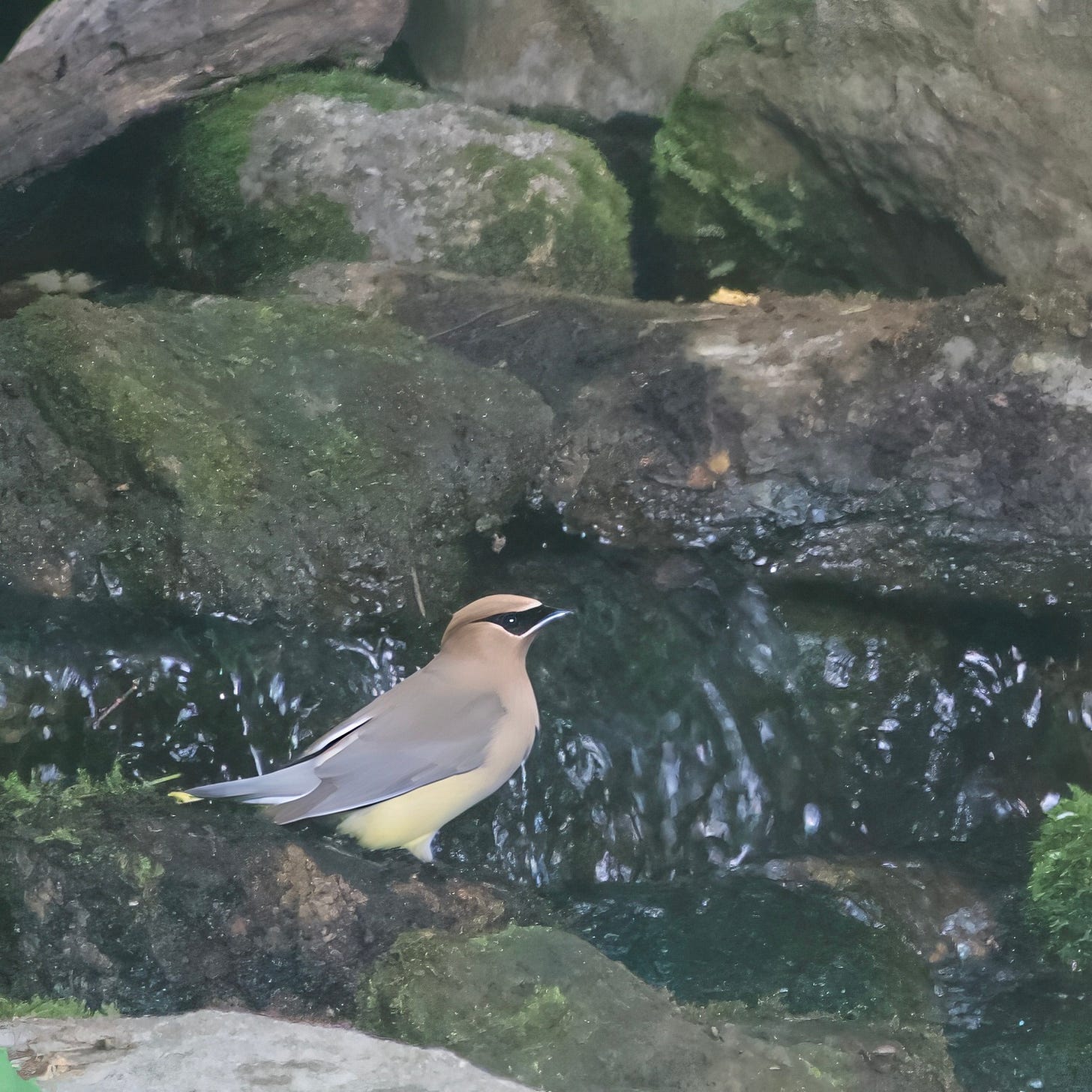
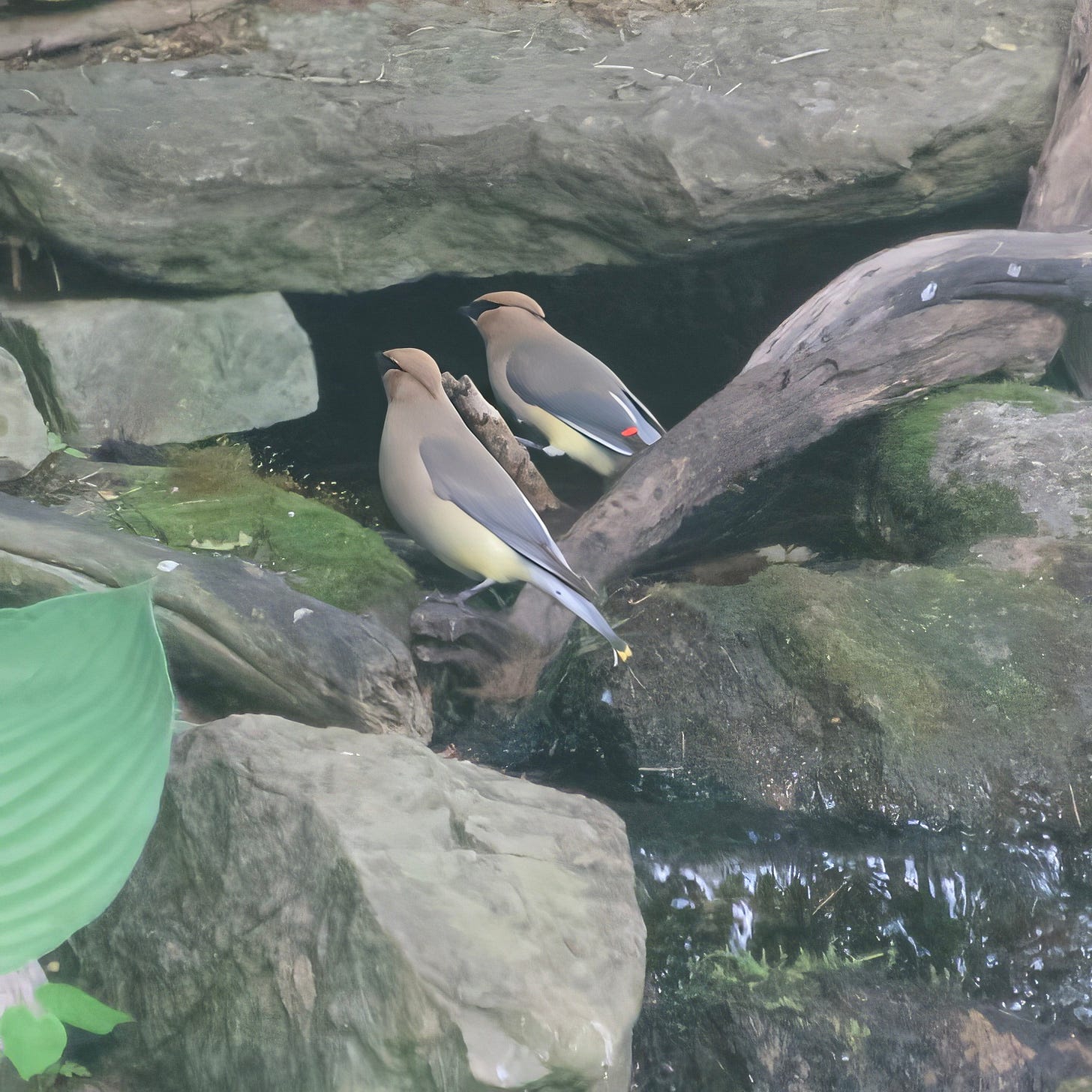
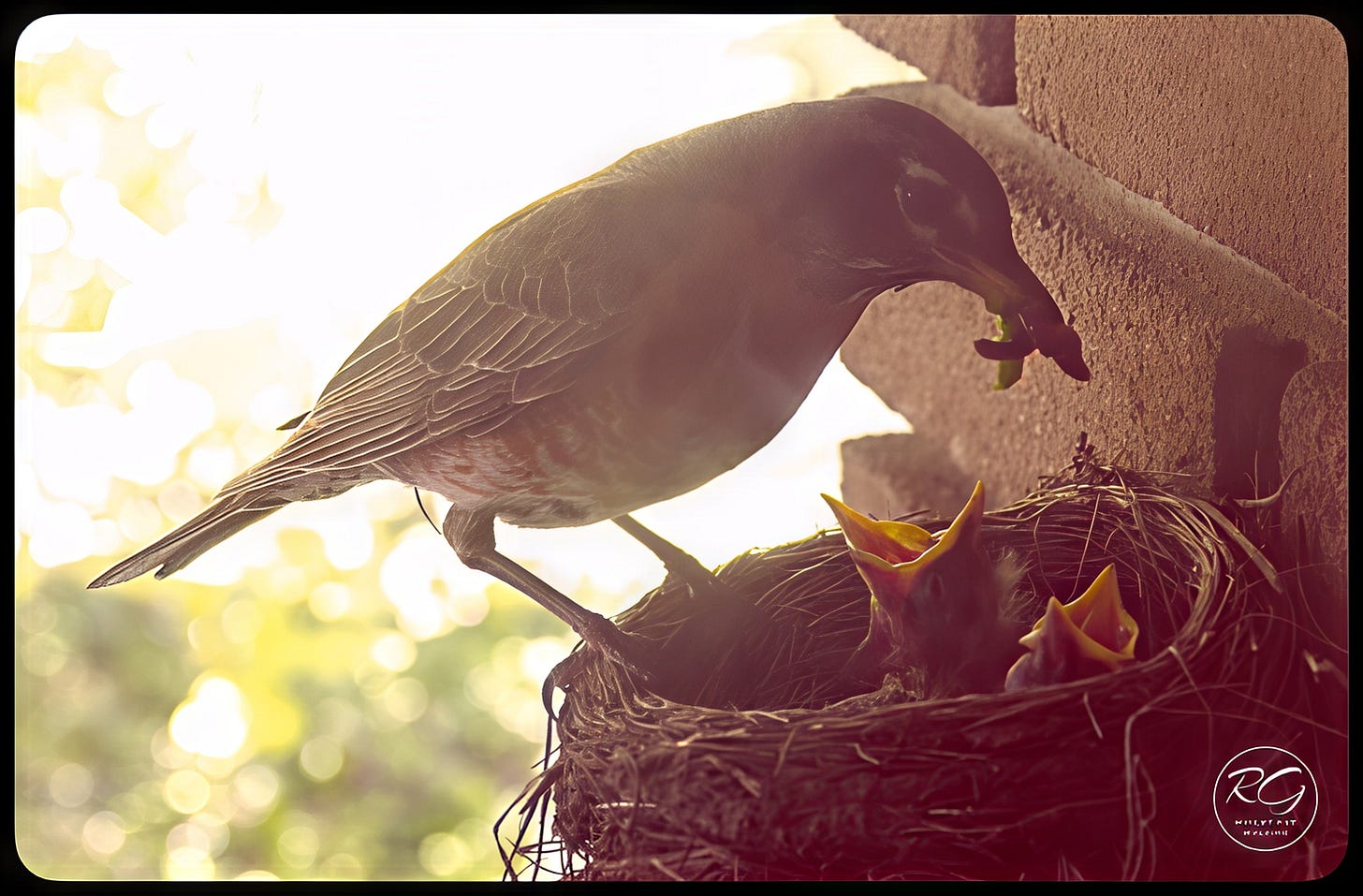
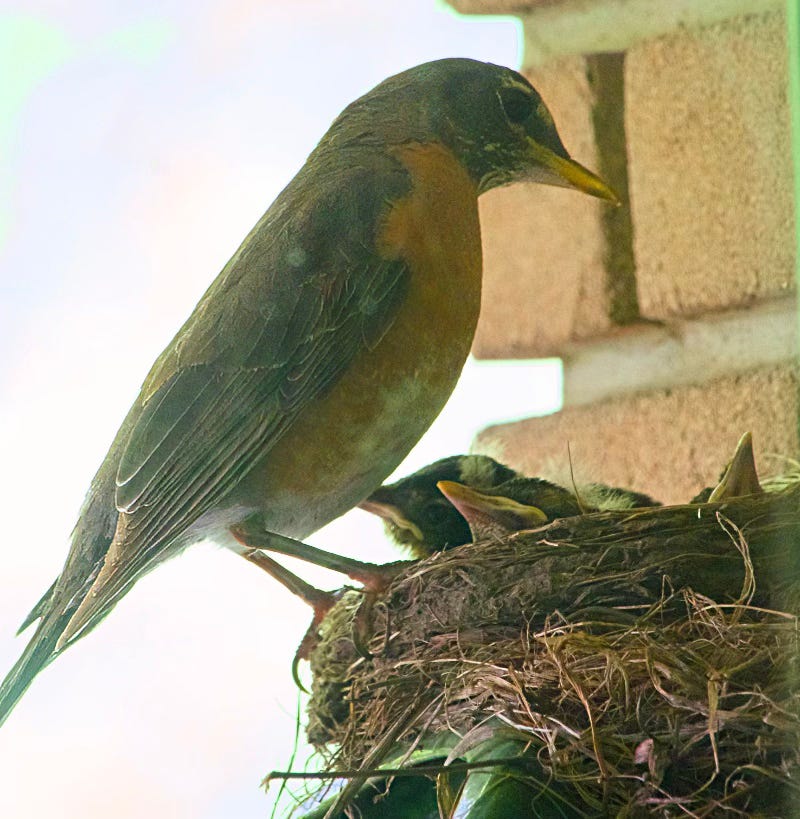
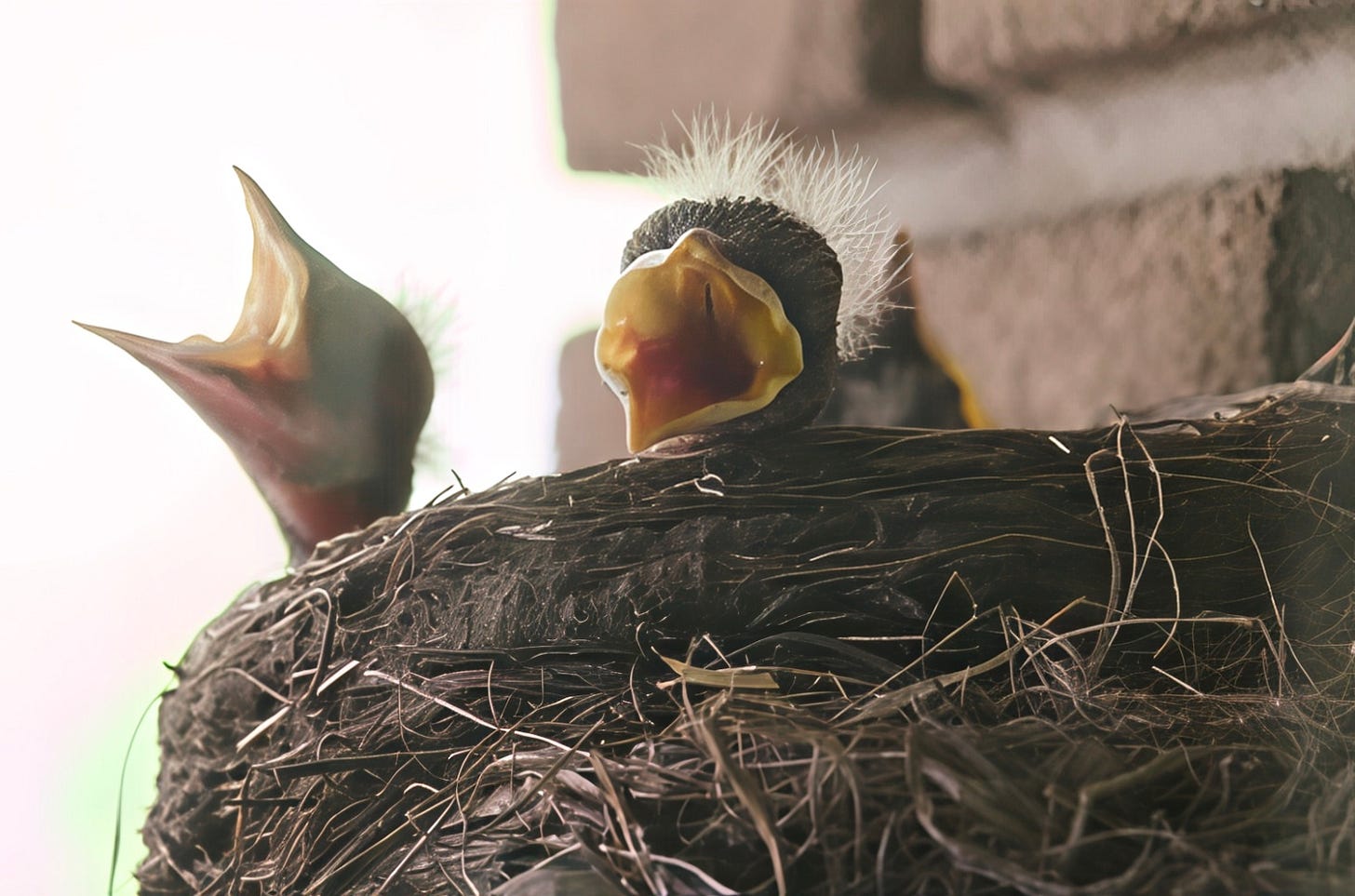
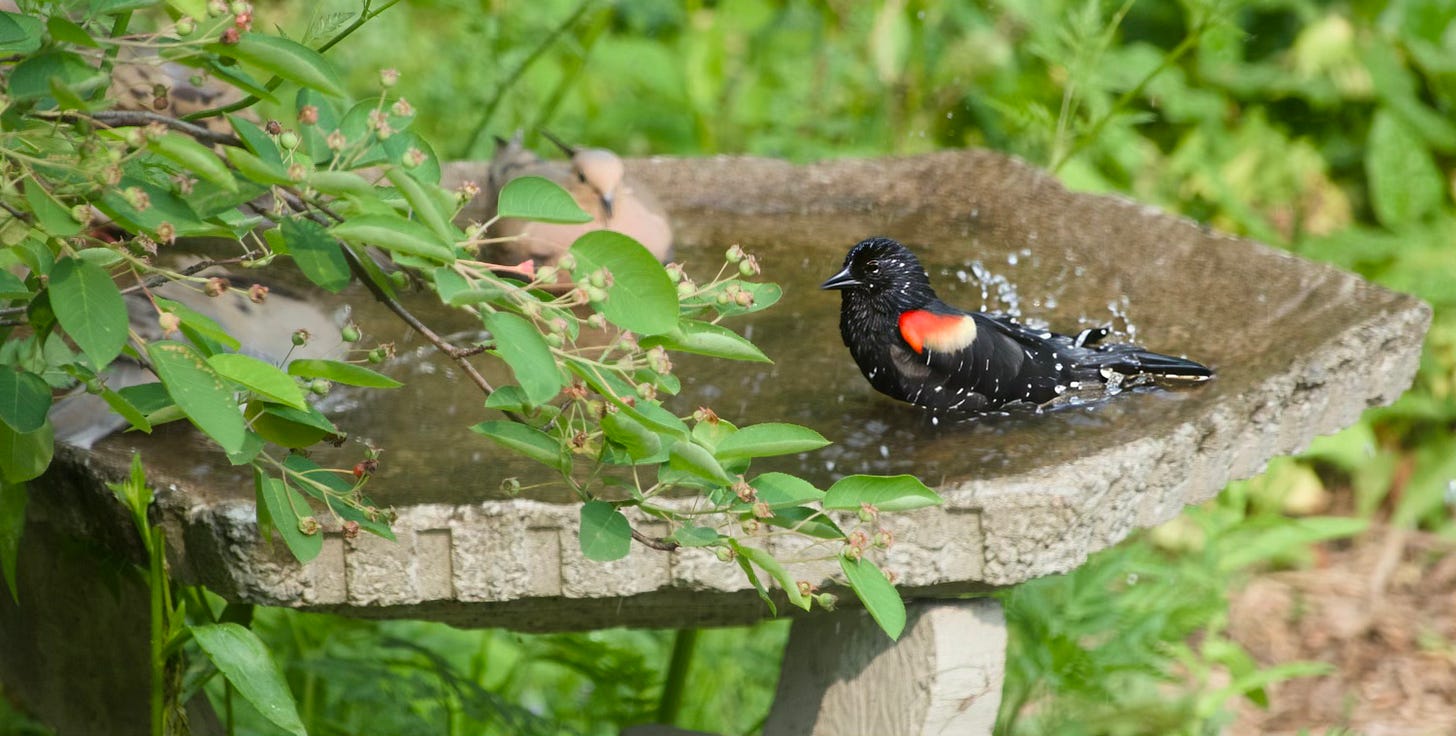
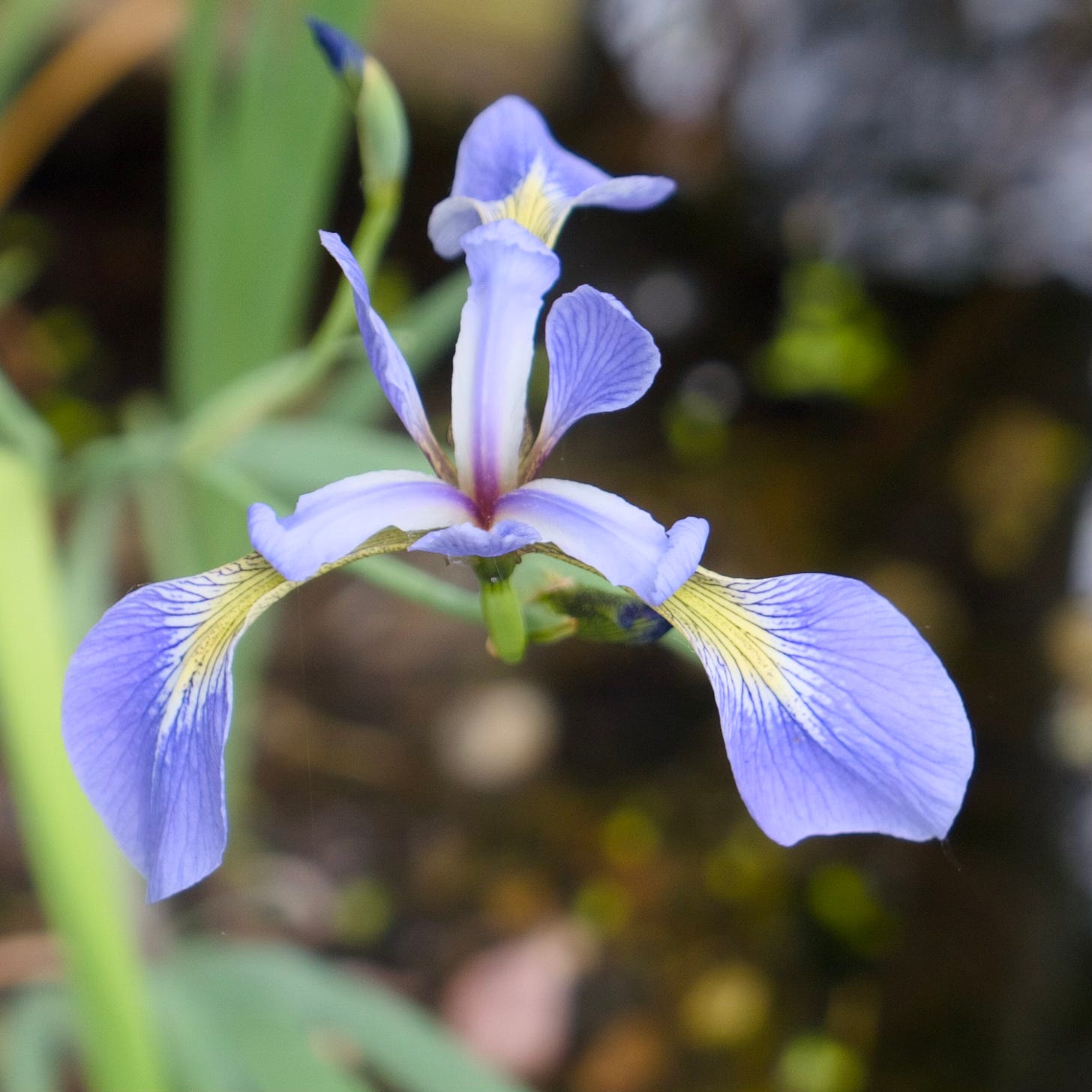


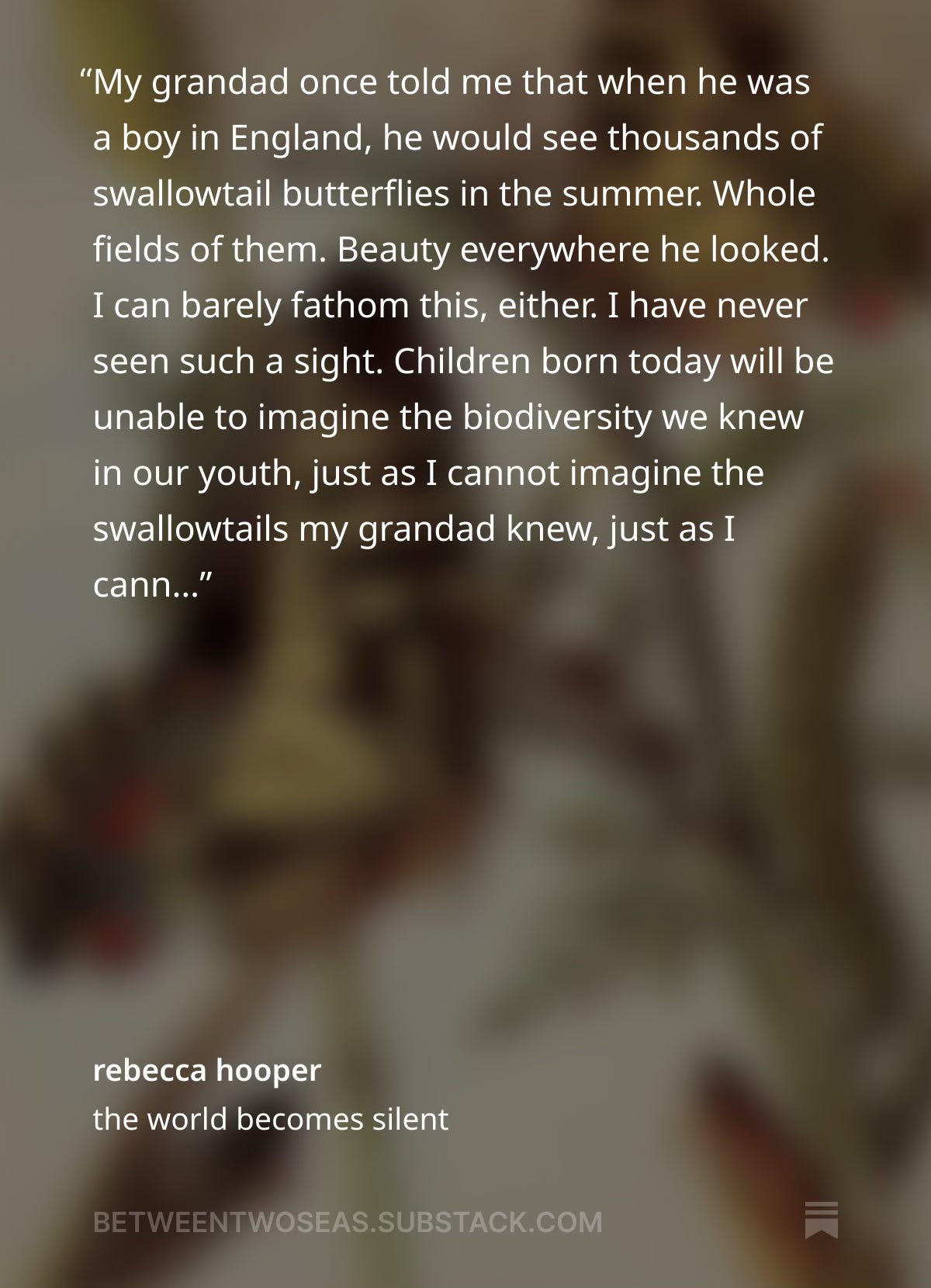


I challenge the assumption: "the most boring people alive are birdwatchers, closely followed by accountants, data analysts and everyone who works in insurance." I have it from the horses mouth that the most boring people are actuaries. Quote: "it a job for people who find accountancy too exciting" No way is bird watching boring.
It's shocking what's happening to insect populations worldwide. I've really noticed a decline in the past few years.
I sort of imagine that birds on nests used to enjoy becoming expert entomologists, but that options is increasingly not there for them.
It's great that Scotland is going to criminalise eco-cide, but the proof will definitely be in the puddign as they say, our Scottish Government is very good at making bold policy but then not really following up on it.